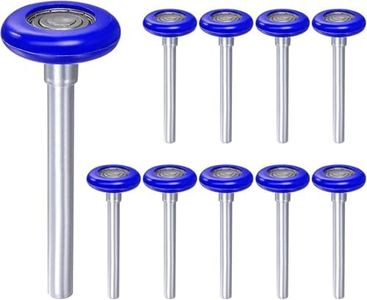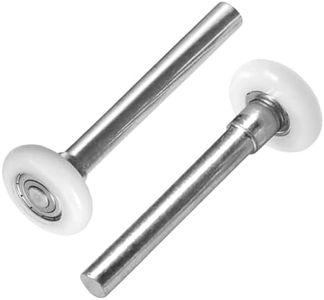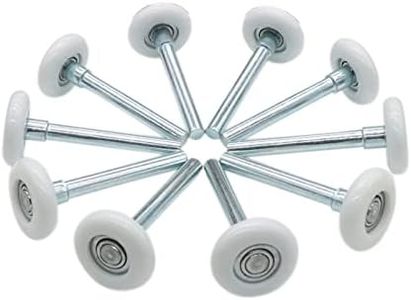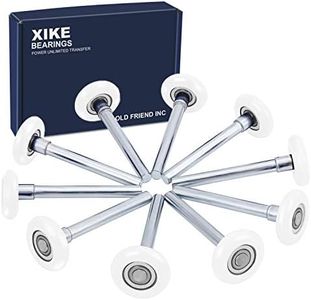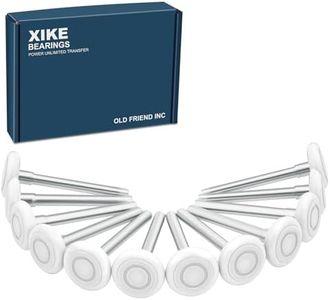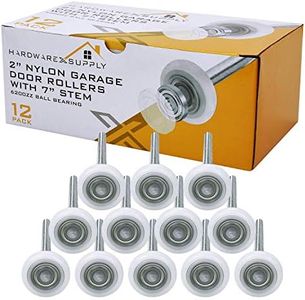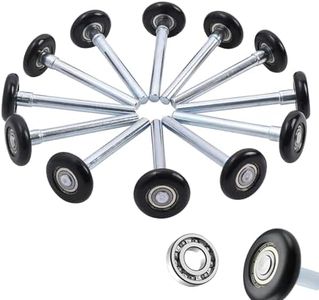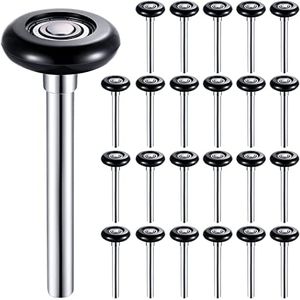We Use CookiesWe use cookies to enhance the security, performance,
functionality and for analytical and promotional activities. By continuing to browse this site you
are agreeing to our privacy policy
10 Best Nylon Garage Door Roller
From leading brands and best sellers available on the web.Buying Guide for the Best Nylon Garage Door Roller
Choosing the right nylon garage door rollers may seem like a small detail, but it can greatly affect your garage door’s smoothness, noise level, and long-term durability. Understanding key features will help you select rollers that match your needs for performance and longevity. When evaluating options, think about your door’s weight, how often you use it, and whether you want quieter operation or require less maintenance.Roller DiameterThe roller diameter is the width of the wheel part that fits into the door tracks. Common sizes include 1-inch, 2-inch, and 3-inch diameters. A properly sized roller ensures your garage door moves smoothly and doesn’t wobble. Most residential garage doors use 2-inch rollers, while heavier or industrial doors may need larger ones. Check your current roller size or your door specifications to be sure to match the diameter, as the wrong size can cause noise, premature wear, or even track damage.
Stem LengthThe stem is the long rod attached to the roller wheel, which slides into the hinge or bracket on your door. Stem lengths vary but are typically around 4 inches for standard residential use. Having the correct stem length is vital because a stem that’s too short can fall out of the hinge or roller bracket, while a stem that’s too long may cause alignment issues. To select the right length, measure your existing roller’s stem from end to end and replace with the same.
Bearing Count and TypeBearings are the small moving parts inside the roller that help it spin freely. Nylon rollers can come with single or multiple bearings. More bearings usually mean smoother and quieter operation and a longer lifespan, since the load is spread out. Open bearings are easier to lubricate but can collect dirt, while sealed bearings keep out dust and require less maintenance. If your main goal is quiet performance and low upkeep, look for rollers with multiple sealed bearings.
Weight Rating/Cycling LifeWeight rating tells you how much weight each roller can support, and cycling life refers to how many up-and-down movements the roller can handle before wearing out. Nylon rollers for residential doors usually support between 50-75 lbs per roller and can last from 10,000 to 100,000 cycles. Choose rollers with a higher weight capacity and cycle life for heavier doors or doors that see frequent use—such as if your garage is your main entryway.
Noise LevelNylon rollers are generally quieter than metal ones, making them a good choice if you want to minimize noise. Still, there can be differences; more bearings and better construction can further cut down on sound. If you have living areas next to or above your garage, or if noise is a concern, prioritize rollers advertised as 'ultra-quiet' or those with high-quality nylon and multiple bearings.
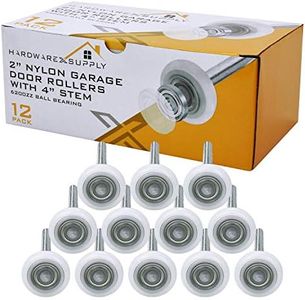
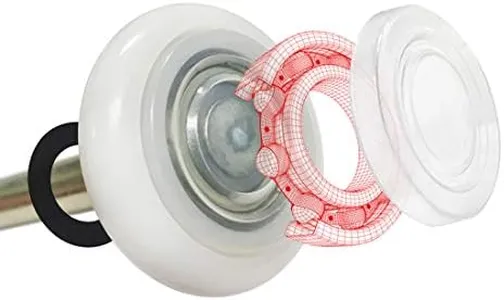
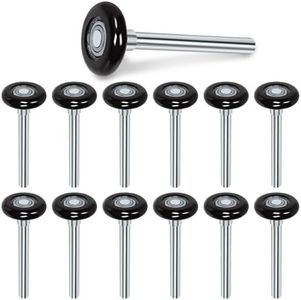
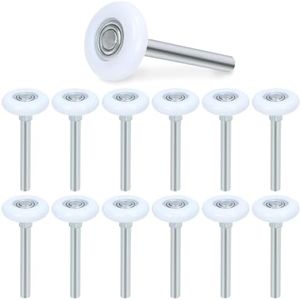
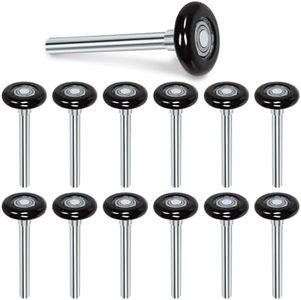
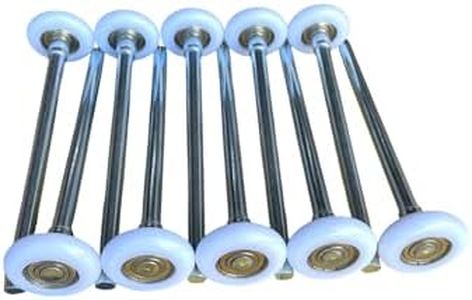
![uxcell 10-Pack Nylon Garage Door Rollers, 1.8"/ 46mm Quiet Garage Door Wheels 4.3"/ 108mm Stem, High Load 6200zz 8 Balls Sealed Precision Bearing for Garage Doors [Blue]](https://images-proxy.bestreviews.guide/ZEjlMCdcmfJ5TD43P0qCNqbmbUE=/0x300/https://m.media-amazon.com/images/I/41QSLSMV7LL._AC_CX679_.jpg)
